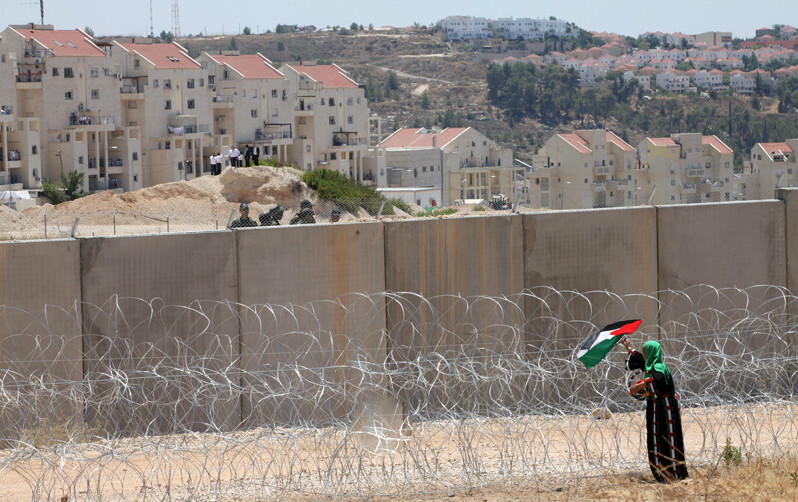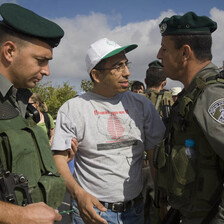The Electronic Intifada 5 July 2011

The Palestinian people are sustained by their long history of steadfastness.
ActiveStillsThis week, hundreds of activists plan on challenging Israel’s apartheid apartheid by flying in to Ben Gurion airport near Tel Aviv as part of the “Welcome to Palestine” initiative. Heraclitis once stated that “There is nothing permanent except change,” and indeed human history is a chronicle of change — and the Welcome to Palestine project follows that tradition.
No change happens without challenging the status quo. Few people reflect even on modern history to understand how we achieved things like civil rights in the US, enlightenment in Europe, ending slavery, giving women the right to vote and establishing democracies around the world. All these changes from an unjust situation (the status quo) required the agency of mass movement.
On our horizon today is of course the mass movement of Arab people yearning for freedom from decades of dictatorships — many of those structures created and supported by the West.
Rebellion against injustice of course is also a hallmark of the struggle against apartheid in Palestine, a struggle that can be traced back to the first Zionist colony built 131 years ago and that took a giant leap forward by the 1948 founding of the racist state of Israel as a culmination and embodiment of this colonial venture, and the subsequent expansion of this state in 1967 to occupy the rest of Palestine.
Now 7 of the 11 million Palestinians in the world are refugees or displaced people. Palestinian refugees constitute one-third of all refugees worldwide, according to UN statistics. Yet, we are optimistic and we believe change is on the way.
Change is on the way
We are sustained in this positive attitude from our own history of multiple and largely successful uprisings (starting in 1881 and passing through 1920, 1929, 1936, 1972, 1987 and 2000). We are sustained by the sumud or steadfastness of our people who after decades of attempted ethnic cleansing still constitute half the population of Palestine (5.5 million Palestinians, 5.5 million Israeli Jews).
Sure, we are depressed about how the Oslo accords maimed the popular resistance. It was predictable, and as Israeli negotiator Dore Gold told The Jerusalem Post in 1995, the intention was the “creation of a new psychological reality in the West Bank. After initial celebrations, Palestinians will find themselves confined to a certain degree of cantonization.”
Yet, we look with pride at the new forms of resistance constantly innovated. The latest manifestation of this spirit of resistance are attempts, some successful, to return to our lands and homes — as happened on 15 May this year, during the Nakba Day march of return — and the Gaza Freedom Flotilla that aims to break the siege on Gaza. We are heartened by the growth of the boycott, divestment and sanctions movement.
We have individual and collective responsibility to change things by moral and determined ways. Dr. Martin Luther King Jr. stated: “He who passively accepts evil is as much involved in it as he who helps to perpetrate it. He who accepts evil without protesting against it is really cooperating with it.”
The other options have been proven catastrophically negative: relying on politicians (elected or self-appointed) or on the vagaries of shifting military capabilities — a dangerous development in the era of advanced science that makes development of weapons of mass destruction relatively easy even for small state and non-state actors. Let no one have any illusion: we are coming to a major confrontation. It can either be a civil confrontation in which civil society wins the struggle because it became engaged in these tactics of strong and determined popular resistance, or it can happen via armed insurgency that uses modern technology to challenge conventional military forces.
In challenging local dictatorship, we saw the power of civil resistance in Egypt and Tunisia. Challenging colonialism successfully happened with a mix of the popular and armed struggle in Algeria (liberated in the 1960s) and South Africa (more recently). But the mix of civil confrontation and armed insurgency in South Africa was improved thanks to international civil participation. Each situation is unique, and our local history here and the upcoming confrontation will also be unique to Palestine and different than in other places.
We won’t accept the attempts to keep us apart
Our next step toward freedom is a series of events are the plans taking place between 9-16 when hundreds of men, women and children are planning to fly into Tel Aviv to visit us in Palestine. The international community must recognize our basic human right to receive visitors from abroad and support the right of their own citizens to travel to Palestine without harassment.
With the delay in the sailing of the Freedom Flotilla, these two initiatives may coincide temporally. As Israel works to isolate us, we invite you to join with us openly and proudly as the decent human beings you are. We do not accept the attempts to keep us apart or to force you to speak less than with the honesty you are used to.
Guests will enjoy Palestinian hospitality and a program of networking, fellowship and volunteer peace work in Palestinian towns and villages. Local activist groups in Europe and in the United States have organized delegations and hundreds have booked their flights. Once here, much can be done. But whether you volunteer or participate in any of these initiatives or any others, the key word is participation. There are ongoing revolutions everywhere against tyranny. Human spirits cannot be enslaved forever. We must all join in the struggle for freedom because silence is indeed complicity.
Mazin Qumsiyeh is international coordinator for the Palestine Justice Network (PalestineJN.org), a professor at Bethlehem University and the author of Popular Resistance in Palestine
For more information about the Welcome to Palestine initiative, visit http://palestinejn.org/.

